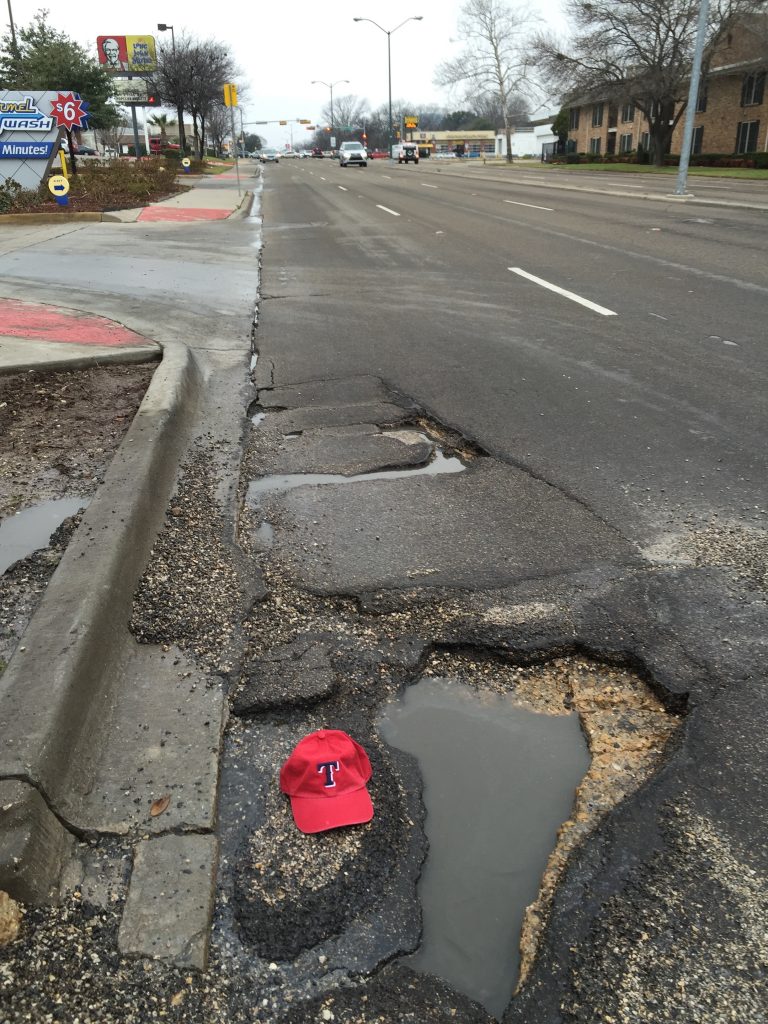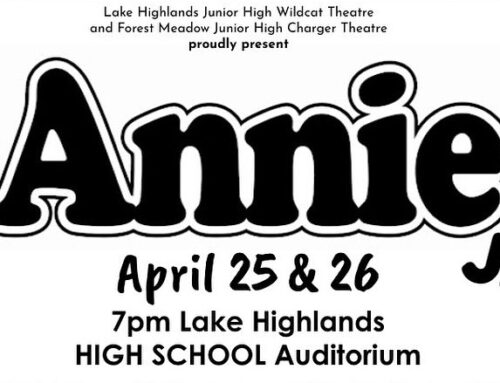The call came in around 11:15 p.m. Our son was driving home from college for a summer internship interview, and he was beached in the parking lot of the grocery store formerly known as Albertson’s at Mockingbird and Abrams.
“I blew a tire, dad,” he said. “I’m here in the parking lot, and the tire is completely flat.”
Luckily for us, he wasn’t hurt, and the problem occurred in the last leg of a 250-mile journey — just east of Skillman in the east-bound right lane on Mockingbird between the veterinarian and the car wash. Unluckily for us, our car had a blown tire, a bent rim and a messed-up alignment.
$197.01.
That’s what it cost us to have the car fixed. New tire. Installation. Alignment. Banging on the bent rim to straighten it out a bit. Pricey, as opposed to priceless.
“You’re the 8th person in here this morning with a blown tire from a pothole,” the repair guy told me the following day at 11 a.m. “Lots of people are hitting big potholes out there.”
A couple of days later, as I drove the length of Mockingbird from Preston Road to Abrams, I finally understood what our politicians mean when they talk about Dallas becoming a “world class city” — I drove through a place where the schools are great, people seem to enjoy their lifestyle, there is plenty of opportunity for arts and leisure, and the infrastructure is excellent.
Unfortunately for those of us who live in Dallas, the world-class cities to which I refer are University Park and Highland Park, at least when it comes to road maintenance.
From Preston Road east on Mockingbird all the way to Central Expressway — roughly the boundary line between University Park and Highland Park — Mockingbird Lane offered smooth sailing. The asphalt was mostly clear of potholes, the few I ran across were minor, and the joint where the asphalt met the cement curbs was smooth as a baby’s skin.
Once I crossed Central going east on Mockingbird, though — into what I keep hearing is an aspiring world-class city — things changed quickly. The street offered up a game of pothole dodgeball, with loud and sometimes painful consequences for drifting into trouble. Even the portions of the street without potholes were generally carved up with contractor cuts into the asphalt, areas supposedly repaired, with emphasis on the word “supposedly.”
What can I do? When it’s dark outside, there’s no way to spot every pothole and avoid it. When it’s light outside, the frequency of street trouble just makes the game more frustrating because it seems as if I should do better, though apparently I can’t. And even when the potholes are mostly repaired in a month or two, many of our streets are still going to be disaster zones.
I’m not saying this is a worthy goal, but it’s clear Dallas is never going to be a world-class city, not in my lifetime and not with $900 million deferred street maintenance. Our employees Downtown at the city keep telling us that’s money we/they don’t have, even as they/we continue to find $100 million here for the Trinity Toll Road and $250 million there for another convention center expansion. And eventually we’re going to cough up $250 million or so that we’re going to lose when we sell the Omni convention center hotel we built and own Downtown.
There’s only one solution: We need to elect additional people to the City Council who are as frustrated with the state of our city as I am.
Or I guess I could move a few miles down the road to some actual world class cities.
Editor’s Note: I drove by the $197 pothole today (Tuesday, March 10) around noon, careful to stay in the middle lane based on prior experience, and the city’s pothole repair crew has already taken care of this pothole. The DMN reported that city pothole repair crews are working 12-hour days through March 14 to take care of the city’s most egregious potholes, and I guess this one fit the bill. In no way am I suggesting that city employees aren’t doing their job here; they have to work with the resources made available to them, and if their bosses aren’t shoveling enough funding their way to repair streets, the street repairs we see are going to be patch jobs rather than fundamental repairs.






